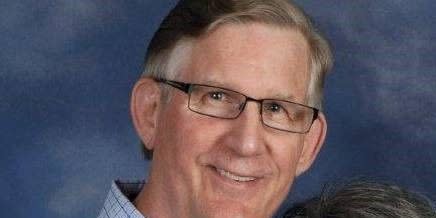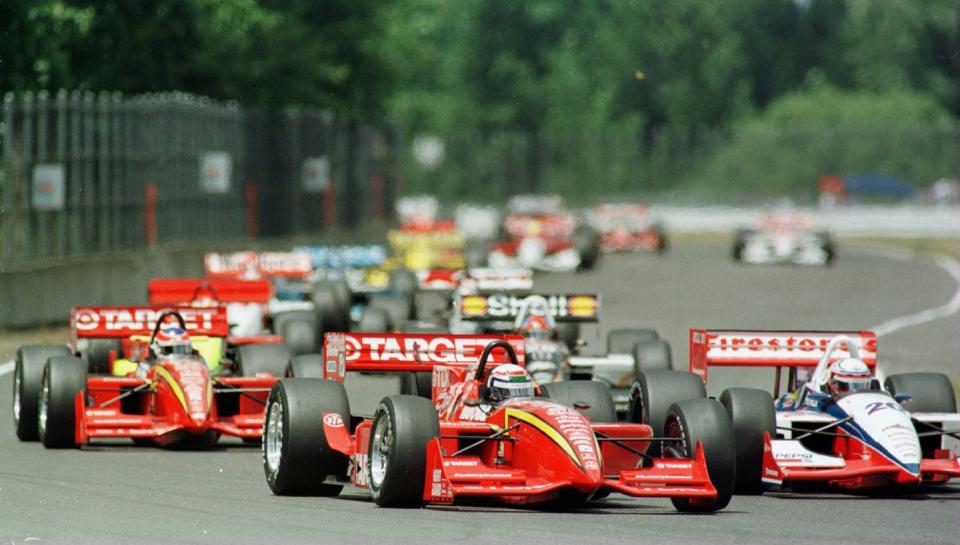Jim Rockstad, 25-Year Seattle's Pacific Raceway Track Promoter-Operator, Dies at Age 79

In the 1960s and ’70s, when the legendary West Coast motorsports promoter Bill Doner was the maestro of mayhem with his Woodstock-style blend of rock bands and drag racing, so-called Fox Hunt events, and 64 Funny Cars, Jim Rockstad was his protégé.
Definitely the yin to Doner’s yang, Rockstad was left to navigate the changing American culture when Doner moved on to other ventures, when those manic types of events no longer worked. For Rockstad, the charisma and exuberance of drag racing dissolved into dealing with what he called “attorneys and contracts, take-it-or-leave-it kind of stuff.”
Rockstad navigated it all with poise, the transitions from the era of swashbuckling and outlandishness to the era of respectability to the current era of regulation. He joked in 2001, as his tenure came to a close after a quarter-century at Seattle International Raceway and the name reverted to Pacific Raceways, that he "has been down the pike too many times" and was ready to pull over to the shoulder.
Rockstad, who penned his memoir, Rocky’s Road, in 2018, died June 13 at age 79, following an extended illness.
But his legacy lives on with racers, colleagues, and even one notable nemesis.
NHRA superstar John Force said he didn’t think Rockstad’s toned-down approach was a negative thing: “When I first came to Seattle, 100 years ago, I came for Bill Doner. I raced 64 Funny Cars. (There were) rock bands, people all over the track, people streaking the track, the crazy days.”
Mike Gittings, the former Seattle official starter and later the NHRA official starter, said, “It was the place to be, (home to) some of the best races ever: Fox Hunts, 64 Funny Cars, motorcycle stunt jumpers, including a wood stage built over the staging lane, and at the end of a large race, a rock band played and everyone danced all the way down the track. The place was electric.”
Force said, “Rockstad came along in that era, but he brought a lot of normal to it. The guy was very smart. He knew what people wanted. They wanted to race. They liked music, but they didn’t want a rock concert. They wanted drag racin’. And that’s what I loved about him.”
Rockstad, who also managed and promoted at Oregon’s Portland International Raceway, leased and operated Seattle International Raceway from the Fiorito family, owners of the venue since its beginning in 1960. Along the way, he found himself locked too often in legal battles with his landlord. Still, Rockstad provided facilities for some of the biggest names in auto racing, including Mario Andretti and Dale Earnhardt and all of the NHRA pioneers, to showcase their talents.
Chris Blair, executive vice-president and general manager of World Wide Technology Raceway at St. Louis, worked closely with Rockstad as former NHRA Division 6 Director. Blair said, “I never thought Jim got the recognition and respect in the racing community at that last race that he deserved. No matter if you are a Top Fuel racer or a local bracket racer, the reason there’s still drag racing in both Seattle and Portland is because of Jim. I attended county meetings with him where he had to endure badgering from everyone from lawyers to politicians. He was stubborn. He fought for his business. He fought for his racers. He fought for the sport. A lot of track operators would have walked away. Jim stayed in the gas.

“He faced a lot of odds just in keeping the doors open as he had to work around restrictive curfews and neighbors who moved next door and then complained about the noise of a racetrack,” Blair said. “Since he only had a lease on the property, he had to jump over a lot of hurdles and patch things together where others would have given up. He did an amazing job to get to the finish line and was happy when he retired in 2001.
“At the time, Jim probably didn’t realize that his timing was perfect. The 2001 season saw the end of the Winston series sponsorship, and the drag racing promotional business hasn’t been the same since. I think Jim realized that and decided that fighting to keep his track in the face of a changing sponsorship business model would be much tougher than before. He was right.”
No one knows that better than current track operator Jason Fiorito, who said he has come to appreciate his predecessor Rockstad, whom once he considered a nemesis rather than caretaker of his family’s legacy.
“Jim, if nothing else, had a lot of ‘stick-to-it-iveness.’ He had some sand in his shoes, and he endured some pretty tough years there. And he was out there on his own,” Fiorito said. “I know how tough it is to keep a track alive, but I have a lot of resources behind me. Thank goodness my dad (property owner Dan Fiorito) has always backed me and allowed me to rob from other family businesses that were doing well to keep the gates open. And Jim didn’t have the resources I have. So, I have to genuinely have respect for a guy who kept the track alive for a few decades without any support behind him.
“He gave me the opportunity to pick up the ball and try to do as well as I can with it,” he said. “If nothing else, I respect the fact that he was in an industry that’s a pretty tough industry and kept it going and kept drag-racing alive and even maintained the road course.
“At the end of the day,” Fiorito said, “I didn’t agree with everything he did. As somebody who’s been out there for 22 years now, I understand some of the rocks and hard places he was in between.
“We’re all emotionally invested when we’re out there in what goes on and the product we’re providing. Sometimes the economics of the events warrant what we’re doing, and sometimes they don’t. But we do it because we love the track, and we do it because we love the people out there. Sometimes not every decision is a business decision. At the end of the day, Jim had to survive without any big horsepower behind him,” Fiorito said.
“I know what it takes to keep that place alive, and sometimes it takes some pretty substantial horsepower. And if I didn’t have that behind me, I probably would have made some of the same decisions Jim had to make along the way. He just didn’t have the backing I have. I’m grateful for the backing I have, and I also respect Jim for doing what he did for two and a half decades out there,” Fiorito said. “I don’t have to agree with all of it, but I have respect for him.
“He’s part of the fabric of the racing community in the Pacific Northwest. He was on his own there and kept the place open for over two decades,” he said. “He gave me the opportunity to take over where he left off by keeping it alive for long enough that I got my chance at bat.”
Scott New, the second-generation operator at Firebird Raceway near Boise (Eagle, Idaho) along with his brothers Brad and John, said, “We got to live through the entire heyday of SIR and PIR (Portland International Raceway, which Rockstad also operated for many years) all the way to the tail end when he stepped away from the sport.” And he said, “Jim was true survivor and did whatever it took to avoid losing the whole business. Jim was in the right place at the right time.”
New said he and his father, Bill were “constantly sharing ideas” with Rockstad, “trying to devise what might be the next best mousetrap, some plan to create something new.” He said Rockstad “was incredibly gifted at storytelling and was a lot of fun to be around. I always thought of Jim much more as a promoter versus a track operator. He just loved to come up with inventive ideas and new events and was never bashful or timid about experimenting with this or that to develop SIR into the track that it became.
“He took the bull by the horns and really was on quite a ride for his entire career,” New said.
Still, New said, “Jim, no question, he never wanted to be in the spotlight. You rarely would see him seeking out a winners circle to make sure his picture was included along with (the hero of the moment). Jim just wasn’t that way. He was very much so a businessman behind the scenes. I don’t know if he ever aspired to get a lot of attention for how creative and inventive and forward-thinking he was. He did things much more behind the scenes, but he left a footprint that was substantial.”
Rockstad is survived by wife Mo; daughter Maren Kreun and her husband, Jesse; and son Zach Rockstad.

 Yahoo Autos
Yahoo Autos 